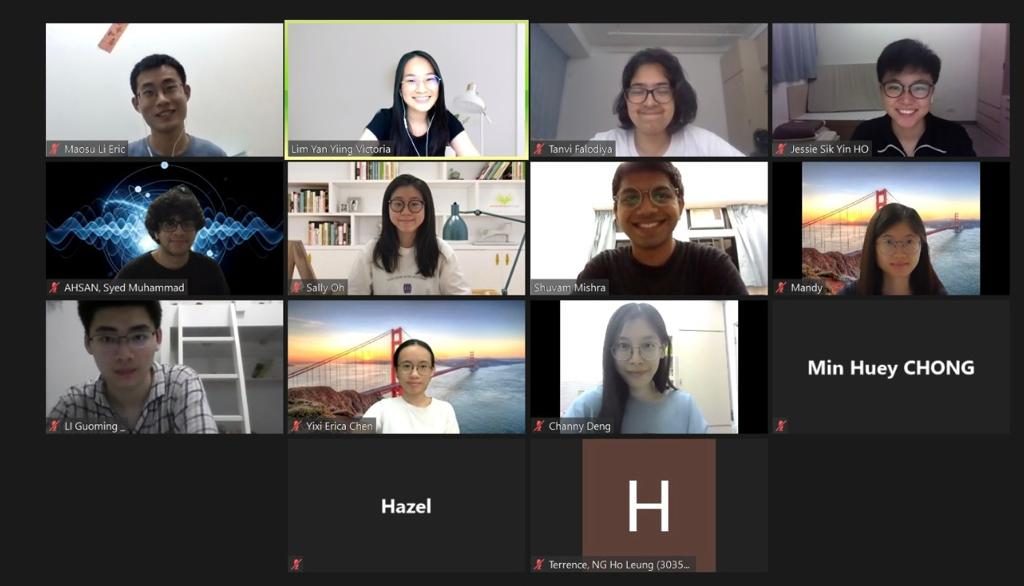RAASHow: Surviving UG
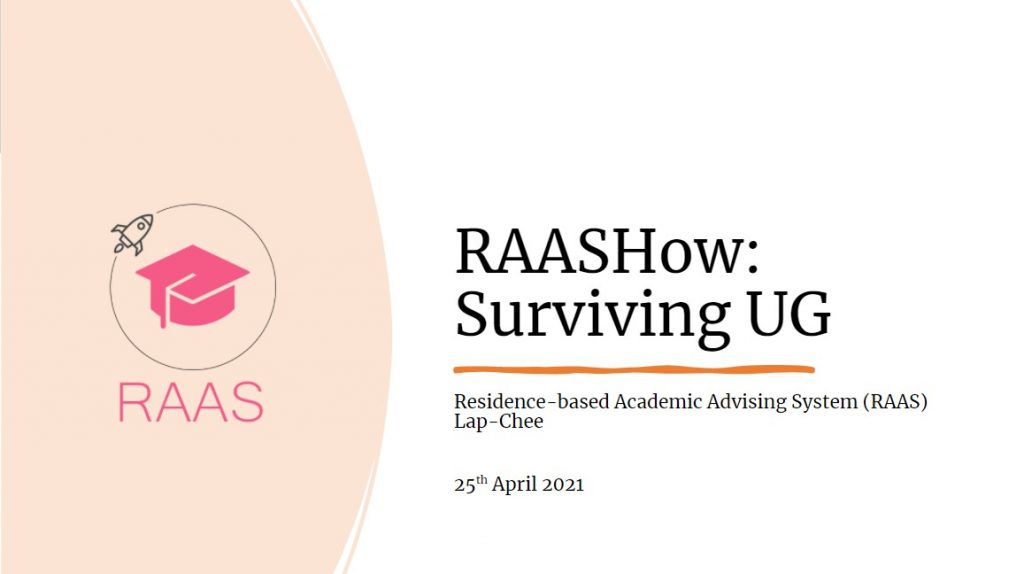
[post-views]
As undergraduates, we may often feel lost navigating the daunting and unfamiliar university experience. Further, it’s all too common to be plagued by the stress of juggling coursework with extracurriculars whilst still planning for internships, exchange, or post-grad. To quell all these concerns, the Residence-based Academic Advising System, RAAS, hosted its last event of the semester, “RAASHow: Surviving UG” on the 25th of April.
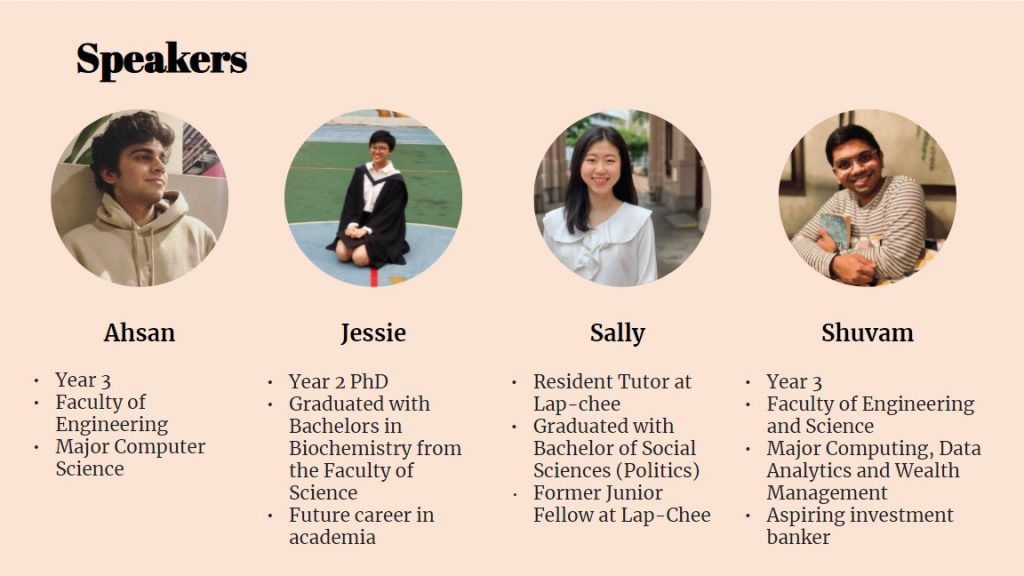
An accomplished and lively group of speakers were invited to share their diverse undergraduate experiences and journeys in an engaging panel discussion. On the panel, we had Ahsan Syed Muhammad, a third-year Computer Science major from the Faculty of Engineering, Jessie Ho, a second-year PhD student from the School of Biomedical Sciences, Sally Oh, Lap-chee’s Resident Tutor and a recent graduate from the Faculty of Social Sciences, and Shuvam Mishra, a third-year undergraduate student pursuing his degree in Computing, Data Analytics, and Wealth Management under the Faculty of Engineering and Science.
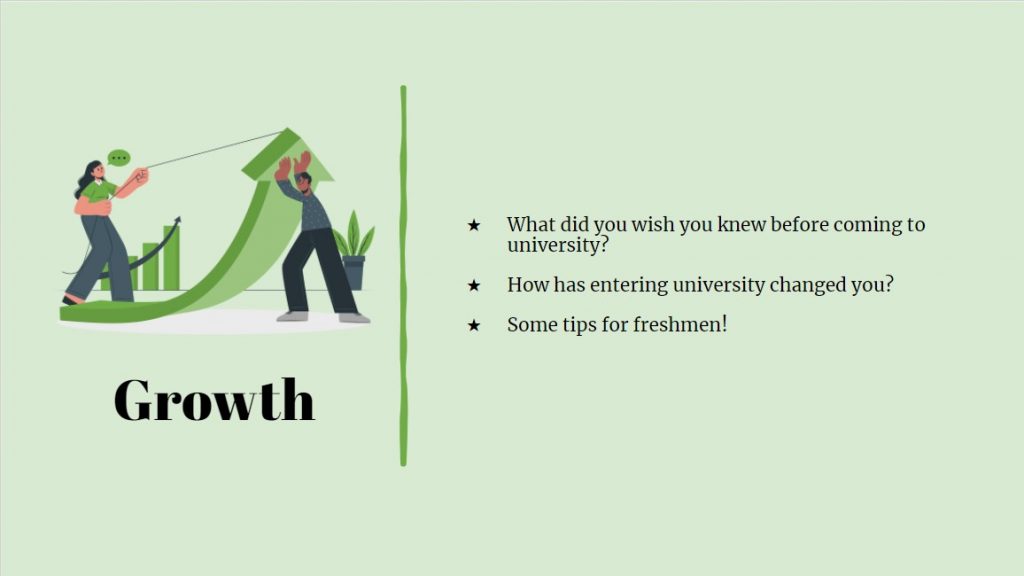
At the start, the panellists were invited to speak about their general growth throughout UG. Common themes of growth in terms of gaining confidence as well as understanding and appreciating independence and its associated responsibility were among the first ideas to be discussed. Jessie and Ahsan identified their shared experiences of understanding to be comfortable in their respective areas of interest while Shuvam brought up an interesting realisation of matching his career to the skills he has developed or is working to develop.
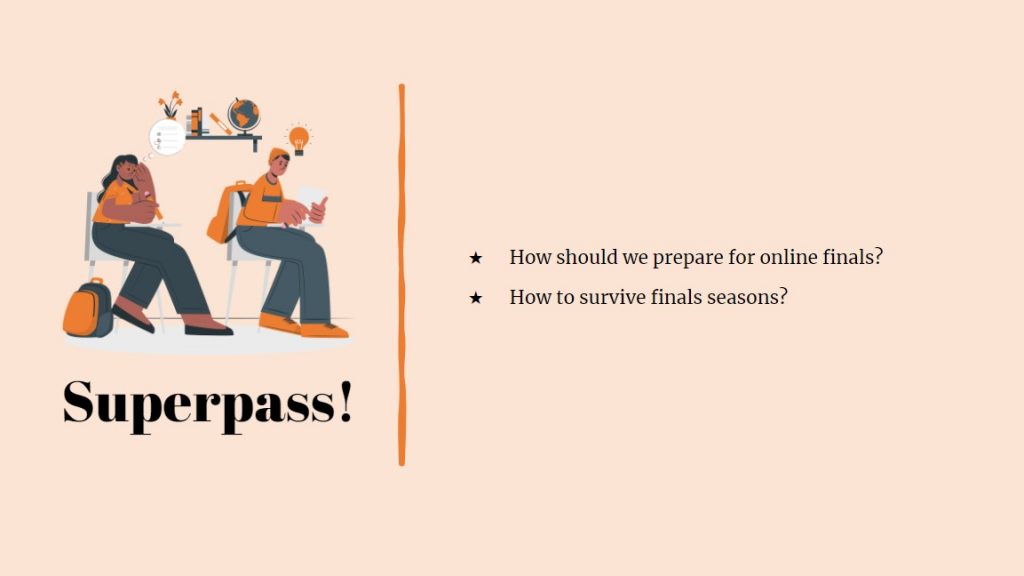
With finals just around the corner, the panel dived into recounting their experiences with exam pressures and demands. Shuvam and Jessie emphasised the importance of time management by explaining that they work best by conquering smaller challenges every day or every week. They also spoke about setting consistent and achievable schedules to stay on top of work. For those of us who may be too far into the semester to do that, Ahsan and Sally have us covered. They stressed the importance of trying out past papers, finishing up readings early, and handling work smarter during exam week. Despite the differences in their approaches, all of them cautioned us about being mindful of our health, both physical and mental, and advised us to take breaks, eat and sleep well and reach out as and when required. Before we moved ahead, Shuvam urged us to be careful given the new arrangements being implemented in the coming examinations and to test all devices and setup procedures well beforehand.
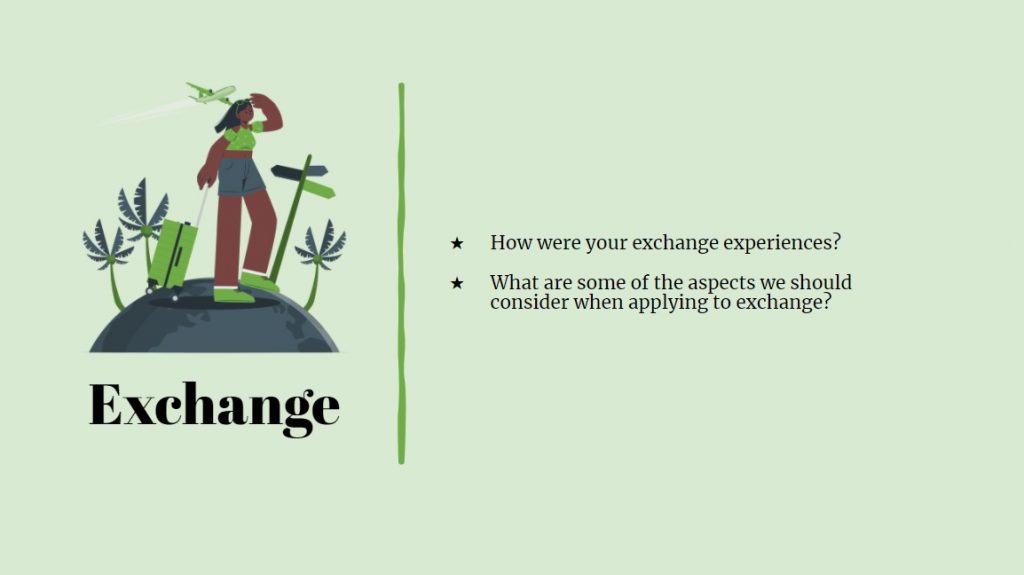
Moving onto lighter topics, we had questions regarding planning for and going on the exchange to the panel. Sally described her exchange as a quest for cultural reconnection with Korea. Offsetting the gain in knowledge, both academic and cultural, that is commonly associated with exchange programs, she mentioned some of the challenges faced, such as culture shock and the language barrier. She further recommended that we do extensive research on the place that we are applying and prepare suitably for the same. Weighing on the pros and cons of virtual exchange, Ahsan related his experience with an exchange, having just completed it this semester. He noted that with everything being shifted online, one may run the risk of losing the essence of “going on exchange” and only experience the coursework and not the culture. On the other hand, he spoke on being able to recognise the advantages of being able to gauge this coursework and the general academic environment of his selected university.
Shuvam and Jessie presented an alternative solution to those who cannot apply for the usual semester exchange and suggested planning for summer or winter programmes. Giving us an insight into her own experiences, Jessie encouraged all outgoing students to be perceptive of the community and the country they apply to. She further brought up the importance of adapting to and embracing the culture prevalent in the region.
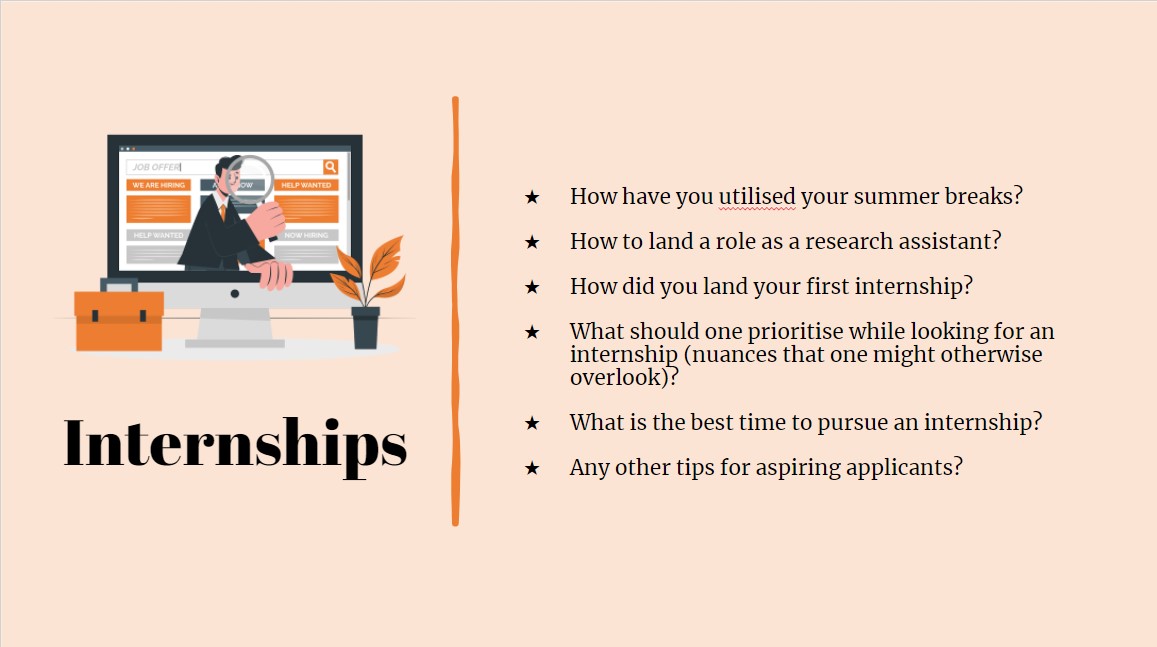
Arguably the most exciting aspect of the night was the discussion on internships which brought out a long discussion range of perspectives. Having been on both sides of the recruitment process, Jessie opened the discussion on this section by breaking down the expectations from both ends in a research setting. She pointed out qualities that professors and lab personnel consider when hiring interns emphasising features like being well versed with the broad concepts that a specific laboratory deals with, curiosity, and displaying a willingness to learn and grow. From an aspiring intern’s perspective, she addressed the importance of understanding the lab’s core requirements, culture, and schedules as well as gauging the people working in the lab because factors like those affect not only the quality of one’s experience but also their learning there.
Ahsan, detailing his history with an internship, cautioned us of the frenzy that surrounds the internship and/or job playing field. He addressed the significance of developing a strong brand that stands out in the industry of interest and sustaining and updating the quality of this brand, especially given the competitive nature of the work culture. He also highlighted the importance of developing a network and recommended being bold in making use of those connections for not only job/internship opportunities but also to grow by learning from both their successes and failures. His ended with an encouragement to continue fighting and to never lose hope as well as the sight of our goals.
Shedding light onto investment banking and, generally, the finance industry, Shuvam spoke about the different areas and levels of work we could consider applying to. Further, he pointed out other essential aspects to examine, such as balancing/matching our skills with those required, language requirements at different positions, conditions of the industry, and the natural biases in play among others. For those looking to enter finance, he also suggested branching out from investment banking by targeting opportunities among the different aspects of the finance world.
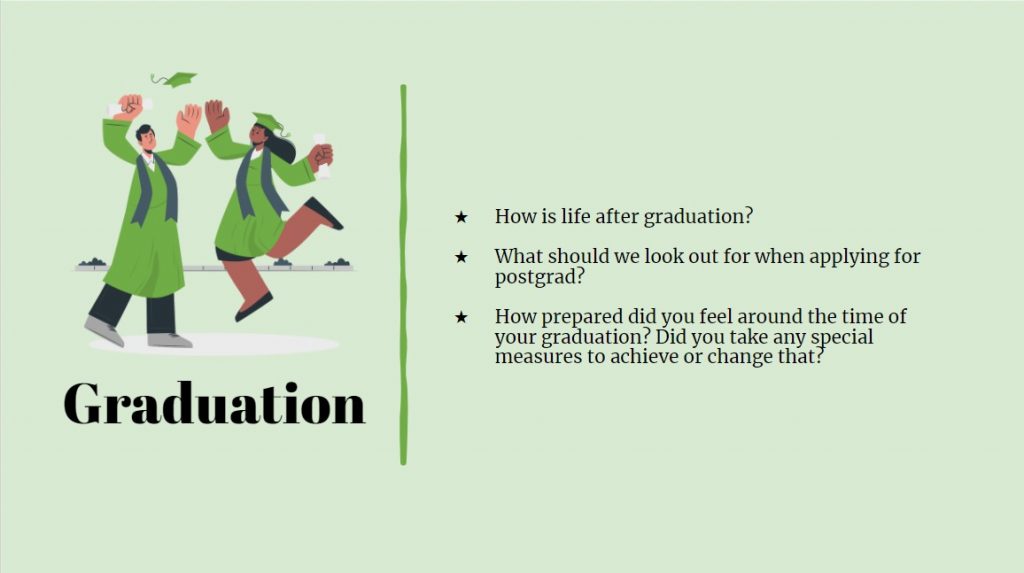
One of the key takeaways from the next discussion on life immediately after graduation was to remember to apply for an extension of visa and sort through other legal procedures to continue staying in Hong Kong. Sally spoke about how it’s only natural to feel overwhelmed and worried by the prospect of graduation and even during everyday life at university. She reminded us that we shouldn’t, in such circumstances, hesitate to reach out either to the university or, personally, to her and the rest of the community here for help.
Further to what Sally said, the panel collectively emphasised the importance of trying to maintain a healthy lifestyle and mindset. They reassured us not to give up but continue pushing for our dreams and make the most of this formidable yet exhilarating undergraduate journey.
TEXT: Tanvi Falodiya
IMAGE: Yan Yiing Lim, Residence Based Academic Advising System
